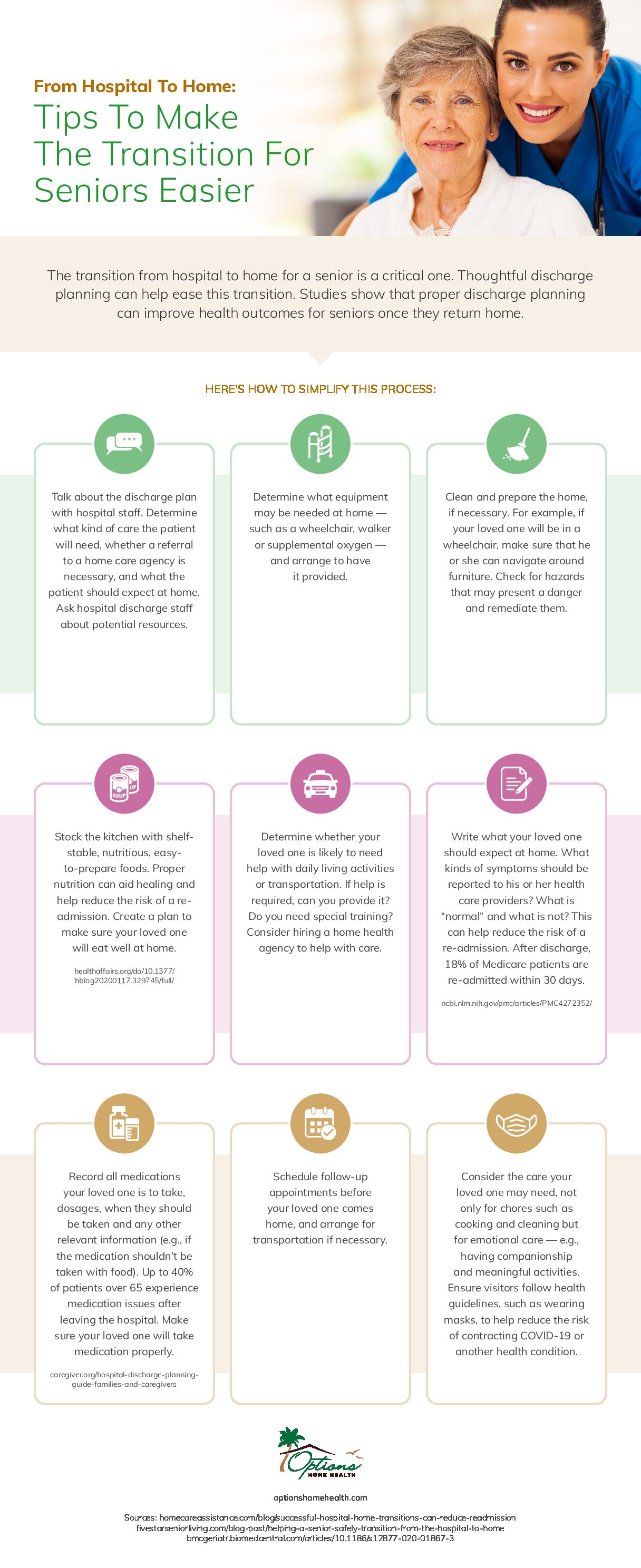The transition from hospital to home for a senior is a critical one. Thoughtful discharge planning can help ease this transition. Studies show that proper discharge planning can improve health outcomes for seniors once they return home.
Here’s How to Simplify This Process:
Talk About the Discharge Plan
Talk about the discharge plan with hospital staff. Determine what kind of care the patient will need, whether a referral to a home care agency is necessary, and what the patient should expect at home. Ask hospital discharge staff about potential resources.
Equipment
Determine what equipment may be needed at home — such as a wheelchair, walker, or supplemental oxygen — and arrange to have it provided.
Clean and Prepare the Home
Clean and prepare the home, if necessary. For example, if your loved one is in a wheelchair, make sure they can navigate around furniture. Check for hazards that may present a danger and remediate them.
Stock the Kitchen
Stock the kitchen with shelf-stable, nutritious, easy-to-prepare foods. Proper nutrition can aid healing and help reduce the risk of re-admission. Create a plan to ensure your loved one eats well at home.
Help With Daily Living Activities or Transportation
Determine whether your loved one is likely to need help with daily living activities or transportation. If help is required, can you provide it? Do you need special training? Consider hiring a home health agency to help with care.
Reduce the Risk of Re-Admission
Write what your loved one should expect at home. What kinds of symptoms should be reported to his or her health care providers? What is “normal” and what is not? This can help reduce the risk of re-admission. After discharge, 18% of Medicare patients are re-admitted within 30 days.
Medication
Record all medications your loved one is to take, dosages when they should be taken, and any other relevant information (e.g., if the medication shouldn’t be taken with food). Up to 40% of patients over 65 experience medication issues after leaving the hospital. Make sure your loved one will take medication properly.
Schedule Follow-up
Schedule follow-up appointments before your loved one come home and arrange for transportation if necessary.
Ensure Visitors Follow Health Guidelines
Consider the care your loved one may need, not only for chores such as cooking and cleaning but for emotional care — e.g., having companionship and meaningful activities. Ensure visitors follow health guidelines, such as wearing masks, to help reduce the risk of contracting COVID-19 or another health condition.
Source: optionshomehealth.com


[…] ALSO READ: From Hospital To Home: Tips To Make The Transition For Seniors Easier […]